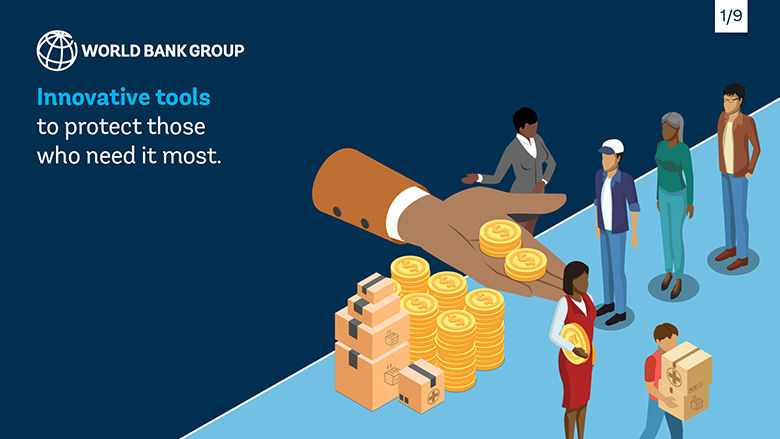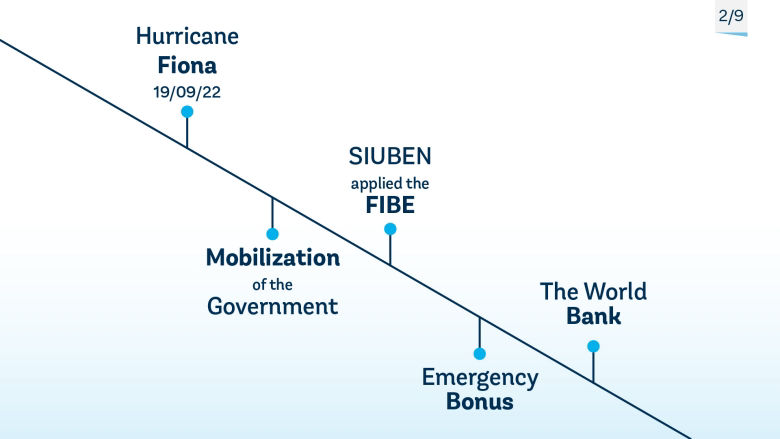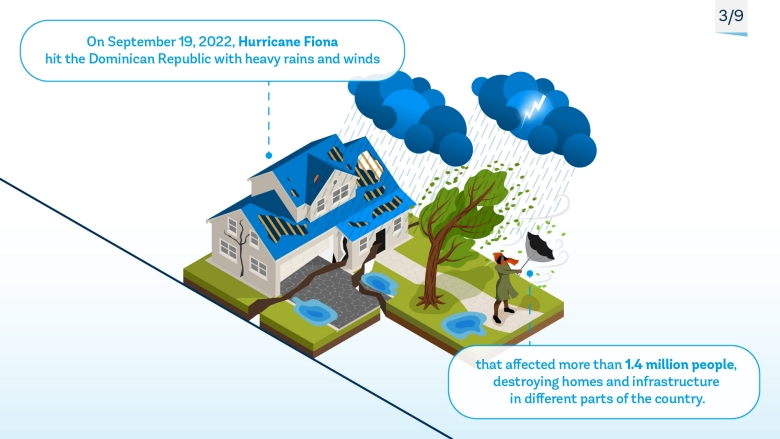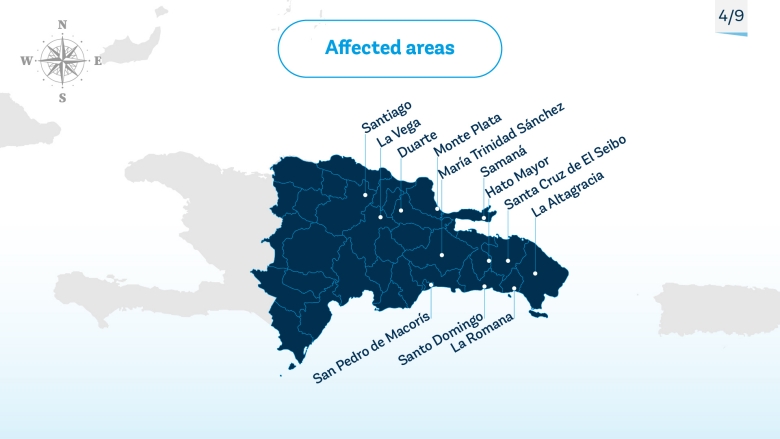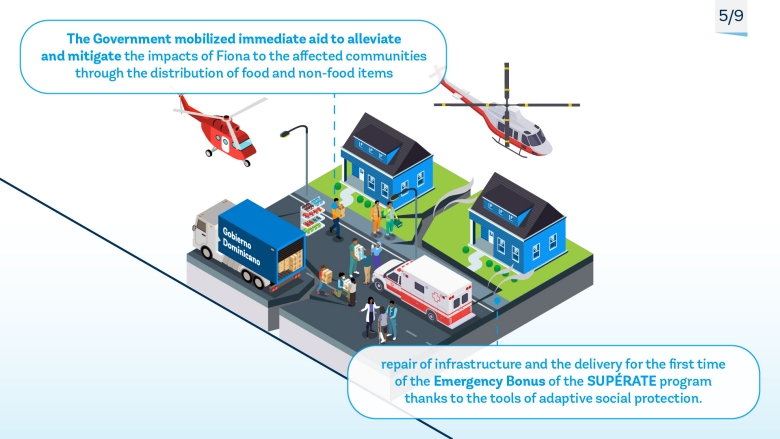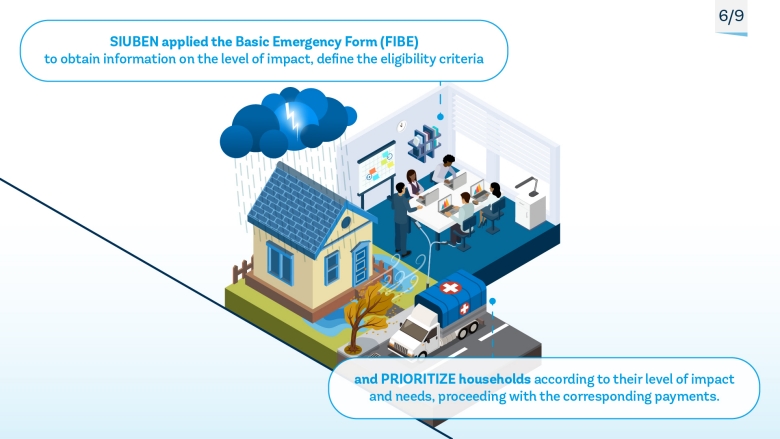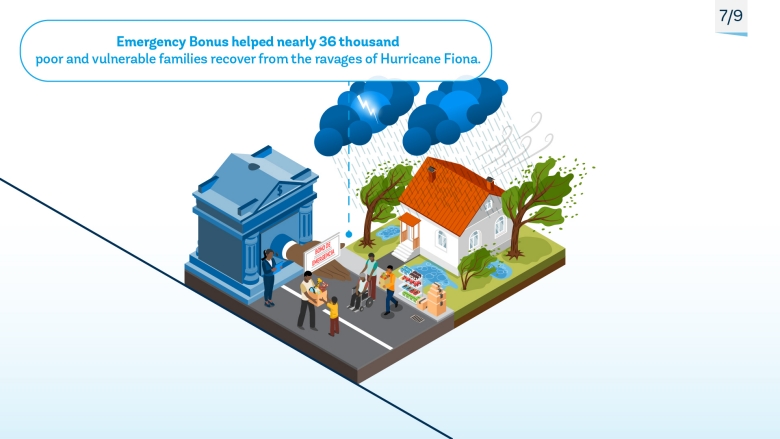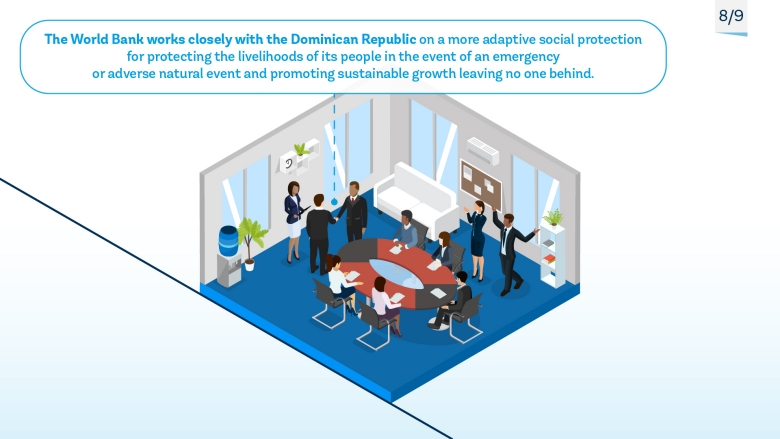Reina Solano, a single mother of five, lives in a modest house in Higüey, in La Altagracia province in the Dominican Republic. Her household was among the 35,000 identified as the most affected by Hurricane Fiona. The heavy rains and strong winds of up to 150 kilometers per hour caused severe flooding and extensive damage, destroying homes and key infrastructure in the Dominican Republic.
“Fiona was a disaster for me. It caused a lot of destruction,” she says.
Soon after, Reina benefited from the Emergency Bonus (Bono de Emergencia) an initiative from the social protection program SUPÉRATE, an emergency cash transfer to temporarily offset the losses she had suffered at home. “I received monthly money that I used to buy food for my children,” she explains.
However, the respite was brief. “After Fiona, (Hurricane) Franklin came. The entire street was under water, and we have to look for shelter in the church,” she recalls.
For Dominicans, this cycle of disasters underscores the importance of the social protection system in a country highly vulnerable to climate change.
In the Eye of the Storm
Due to its geographic location and insular condition, the Dominican Republic is extremely vulnerable to droughts, floods, storms, hurricanes, landslides, and forest fires. According to the 2023 World Risk Index, it is among the 41 countries with the highest risk in the world. Additionally, World Bank estimates indicate that climate events can cause losses of up to 1% of GDP.
According to the recent Dominican Republic Climate and Development Report (CCDR), by 2050 climate change is expected to significantly impact health, infrastructure, ecosystems, and tourism.
The CCDR also emphasizes that climate related events exacerbate the country's social inequality: floods, for example, hit the poorest populations the hardest, who live in vulnerable areas and lack resources to cope with the consequences. Without adaptation or mitigation measures, an additional 110,000 people could fall into poverty by 2050.
A Social Protection System Put to the Test
“The risk is not just losing your house and belongings. The poorest and most vulnerable households that do not have resources to cope with the effects of a climate shock - for example, a drought that depletes a rural family’s only source of income – are at risk of adopting harmful behaviors for their well-being, such as eating less,” says Miriam Montenegro, Senior Social Protection and Labor Specialist at the World Bank.
A recent analysis of the strategies employed by Dominican households between 2019 and 2021 to face the adverse effects of floods and tropical storms confirmed that poor families cut their spending on food, health, and education in the aftermath of a climate extreme event.
“The occurrence of adverse climate events underscores the critical need for accelerated action to strengthen the country's resilience and adaptation in an inclusive way,” explains Montenegro.
Strengthening the Resilience of the Most Vulnerable to Climate Change
In this regard, the World Bank has a fundamental role in financing initiatives such as:
- A US$230 million Development Policy Loan with a Catastrophe Deferred Drawdown Option (Cat-DDO) disburses funds for preparedness, response and recovery in the event of a natural disaster or health-related crises. (the first Cat-DDO was approved in 2018 and in 2020 provided immediate support to the response of the COVID-19 pandemic).
- A US$200 million project to address the consequences of emergencies.
- A US$100 million loan to improve the efficiency of social programs like SUPERATE and increase the resilience of the vulnerable population.
Moreover, over the last five years, the World Bank has been a strategic partner providing technical assistance to support the design and implementation of an adaptive social protection system, continuously supporting SIUBEN (a beneficiary record system), SUPERATE, and ADESS (the social subsidies administration), the key social protection institutions in the country.
SUPÉRATE is currently the most important program in the Dominican Republic's social protection system, helping the most vulnerable families by giving them the opportunity to invest in their children's health and education through conditional cash transfers, ensuring they meet certain criteria, such as sending the children to school. It also aims to support participants with training to develop work skills and improve their inclusion in the labor market.
Learn more about the Dominican Republic's adaptative social protection system.



